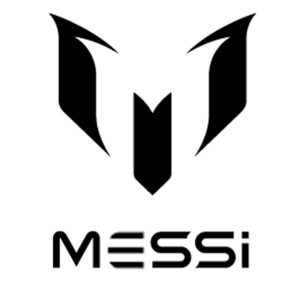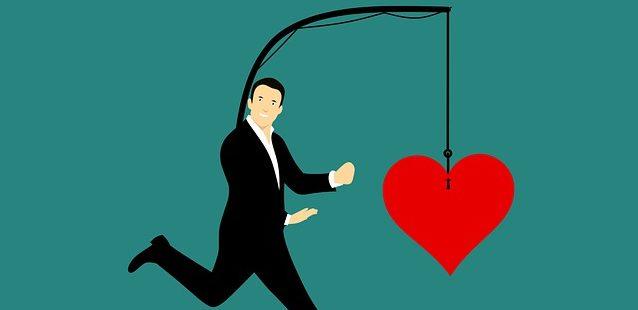Messi turns EU’s top judges into giggling fanboys
Lionel Messi has just won an important case in the Court of Justice of the European Union. By accepting Messi’s appeal, the judges ignored well established legal principles, rolled out a red carpet and confirmed that his trademark can be registered despite prior registration.
The case itself was very simple. In 2011 Messi applied for a European Union trademark for the following logo:

A Spanish company, the owner of trademark MASSI, opposed the application. The EU trademark office expectedly upheld the opposition, deciding that MESSI’s trademark was confusingly similar to the earlier MASSI trademark and could not be registered. This was confirmed by the board of appeal.
The top European court has just now given its final ruling on the matter, deciding that trademark MESSI is not too similar to trademark MASSI. This finding has surprised many European trademark professionals and for good reason. One commentator said that the decision threw away all principles of trademark law.
What’s wrong with the judgment
The main reason for the decision was that although the marks were considered visually and phonetically similar, conceptual dissimilarity was considered so strong that it outweighed all other factors. The conceptual dissimilarity was based on Messi being a famous footballer. This was acknowledged by the court as a “well-known fact”.
A reputation of one party is not a fact that can be taken into account without evidence. The one who claims to have a reputation must prove it. The EU Trademark Regulation states that in such cases the EU office is restricted to “facts, evidence and arguments provided by the parties”. The court even said that those people who have not heard of Messi or do not recall his name are not normally attentive and informed consumers.
A while back the EU trademark office famously cancelled McDonald’s’ trademark registration BIG MAC because McDonald’s did not prove that it had used the trademark. Everybody knows that McDonald’s has been using the trademark BIG MAC (this is probably more well-known than the footballer Messi) but it was still something that they had to prove.
If issues like reputation could be taken into account as “well-known facts”, it would completely distort the trademark system in favour of large companies.
Taking Messi’s reputation into account is also contrary to established case law. In a very recent case involving Puma, the European court stated that the issue of reputation is something that cannot be assumed without evidence. The court said that the assessment of reputation is restricted to evidence put forward by the parties. Somehow this principle did not apply to Messi.
Secondly, even if it is accepted that Messi’s reputation made the marks conceptually different, it is extremely uncommon that this one aspect is so important in overall estimation that it outweighs all the other factors. The products were identical, offered to identical target markets, sold in the same outlets, etc. The marks were similar in all other respects except conceptually. The similarity could even be considered as being relatively high. The products in question were relatively inexpensive everyday consumer items. All factors in the case pointed towards likelihood of confusion. Only one aspect, which was accepted without evidence, pointed against it. Yet, that one consideration prevailed above all others. Until now, when the EU court has considered conceptual dissimilarity to suffice to prevent likelihood of confusion, there have also been other factors pointing that direction.
Another mistake the court made was that the result of conceptual difference should have been that they are “not similar”, rather than that they are “dissimilar”. Conceptual dissimilarity is reserved for cases where both marks invoke a different concept. If only one name invokes a concept, the marks are conceptually “not similar” rather than “dissimilar”.
What are the consequences of the decision?
If the Messi judgment is to be followed, it would mean that famous trademarks could often not be successfully opposed. The owners could always be able to claim that because of their fame the marks are conceptually so different that there is no likelihood of confusion. Recently the European court considered trademarks Sky and Skype confusingly similar. It would seem that since they both are well-known, they could not be confused.
Reversing the issue the other way around, does this decision also mean that the owner of a well-known trademark will find it harder to oppose later trademarks? If somebody applied for trademark MISSI, would he not be able to defend by saying that because MESSI is so famous, the names MESSI and MISSI are conceptually so different that there cannot be likelihood of confusion? This would be a logical conclusion, since fame can now apparently render marks conceptually different, and the conceptual difference seems to trump all other considerations. This would also be a reversal of a basic principle that the more distinctive or well-known a trademark is, the stronger protection it enjoys.
It has also been a firmly held principle until now that the reputation of the applied mark (i.e. the later trademark) is not relevant in assessing the likelihood of confusion. In the EU trademark office’s guidelines (a document detailing how the EU trademark office decides their cases) the reputation of a later trademark is considered under the title “Irrelevant Arguments for Assessing Likelihood of Confusion”. It seems that this could now change.
Conclusion
The irony of the case is that MASSI and MESSI are probably not likely to be confused in real life. However, following the principles of trademark law, they should’ve been found “confusingly similar”. The same could be said of Sky and Skype. Not confusingly similar in real life, but confusingly similar under the practice of the EU courts.
For some reason, the judges followed the legal rules and principles for Microsoft but not for Messi. For Microsoft, the judges favoured a formalistic approach, but for Messi, they opted to be pragmatic. The biggest loser in this case is the owner of the Massi trademark. They spent a lot of time (9 years) and money in this case. By all accounts, they should’ve won. Against any other defendant, they would’ve. Another loser is the integrity of the European top court.



